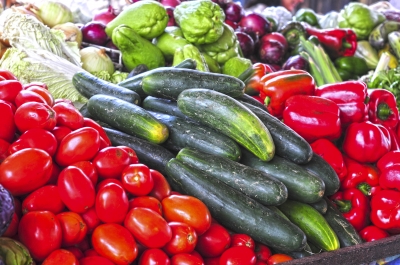The Association of Southeast Asian Nations (ASEAN) is working to fast-track crafting of a draft regional guideline for implementing sanitary and phytosanitary (SPS) measures in the region.
Around 48 officials from relevant agencies in ASEAN member states (AMSs), Australia, and New Zealand dealing with sanitary and phytosanitary (SPS) measures and ASEAN Secretariat officers attended a workshop on a regional guideline for implementing international standards on SPS measures in Jakarta on February 21-22, 2018.
Director Tran Dong Phuong of the sectoral development directorate of the ASEAN Secretariat emphasized the significance of the workshop as an important step in shaping a draft regional guideline. He said addressing common issues and challenges in agriculture and forestry could provide the foundation for future cooperation and enhancing ASEAN access to global markets.
The workshop gathered inputs from member states on the draft review report on implementation of international standards, deliberated on key issues in developing SPS measures, and shared information and the experiences of AMSs, Australia, and New Zealand in applying international standards to SPS.
During the workshop, participants were introduced to the SPS agreement and international standards from the World Organization on Animal Health, International Plant Protection Convention, and Codex Alimentarius or the collection of internationally adopted food standards. Participants also shared the different challenges being encountered and possible recommendations on the application of these international standards and guidelines.
Muhammad Rudy Khairudin bin Mohd Noor, ASEAN co-chair of the sub-committee on SPS, said that “it is crucial that from this workshop we capture the real issues and challenges faced by AMS in implementing SPS measures based on international standards, so that we can identify not only the current situation but also the way forward.”
The workshop also included discussion on how a regional guideline can support the implementation of international standards on SPS by identifying its possible scope, methods or model of delivery, and how it can address challenges identified by the AMSs.
Ilona Stobutzki, Australia’s co-chair of the sub-committee on SPS, said the workshop was an opportunity for ASEAN and its partners to foster implementation of an international SPS guideline. “This is about enhancing regional trade in agri-food while managing biosecurity risks,” said Stobutzki.
In addition, Ursula Egan, specialist adviser for free trade area SPS implementation and coordination, Ministry of Primary Industries of New Zealand, observed the importance of developing and implementing national standards based on international standards and guidelines in facilitating trade among ASEAN-Australia-New Zealand Free Trade Area (AANZFTA) parties.
Photo: Nick Hubbard
Image courtesy of Gualberto107 at FreeDigitalPhotos.net









